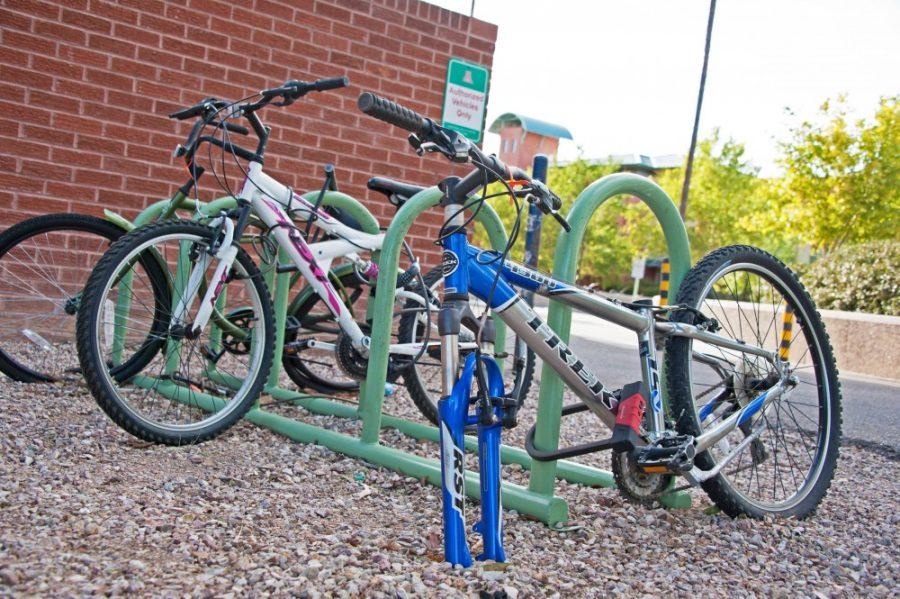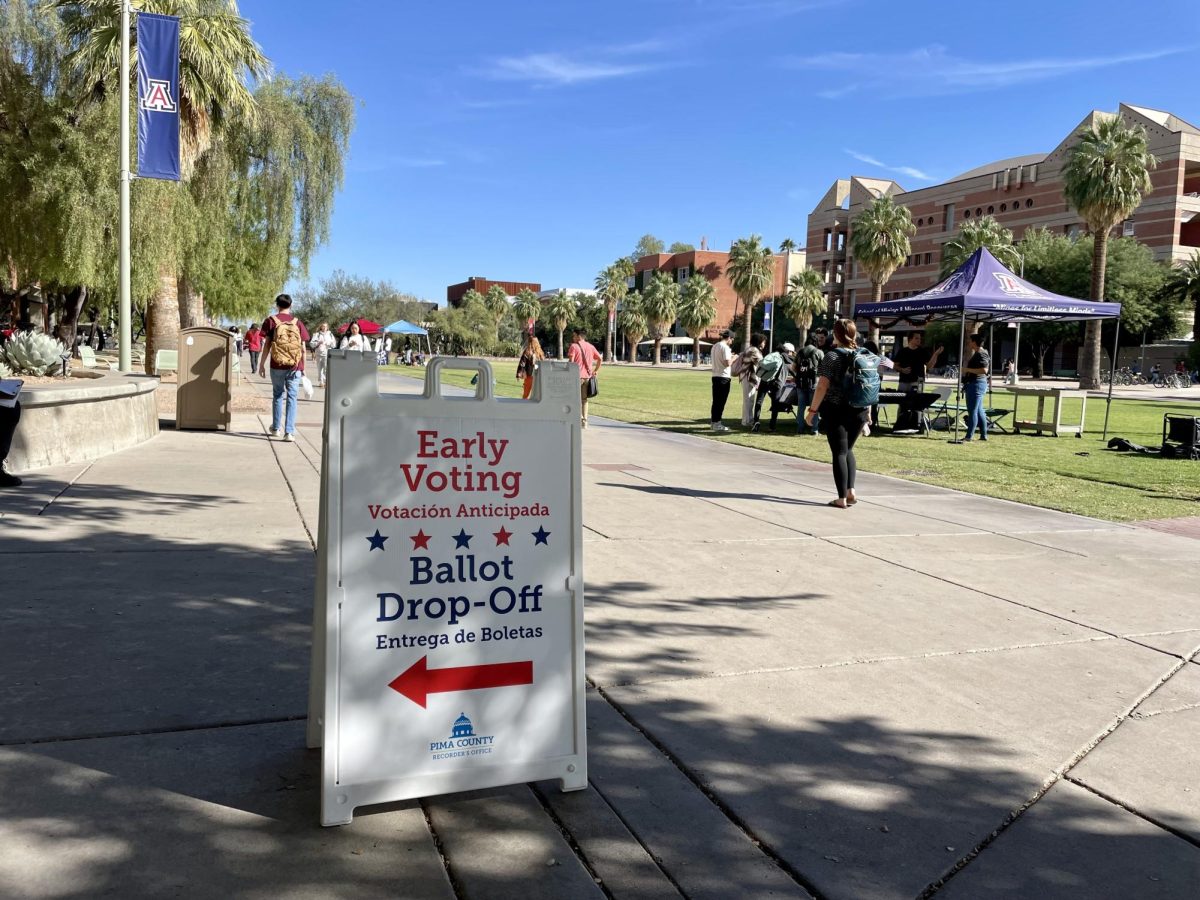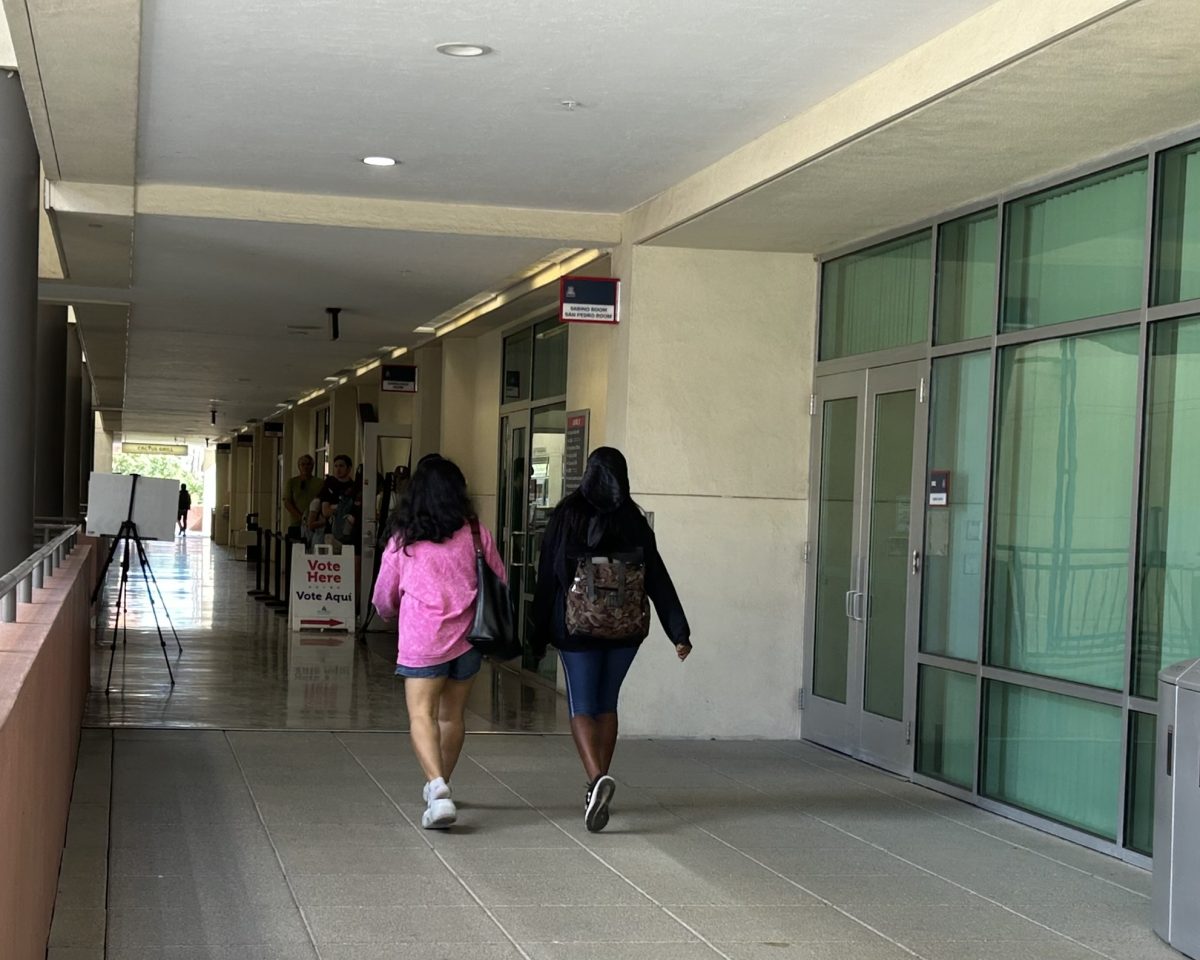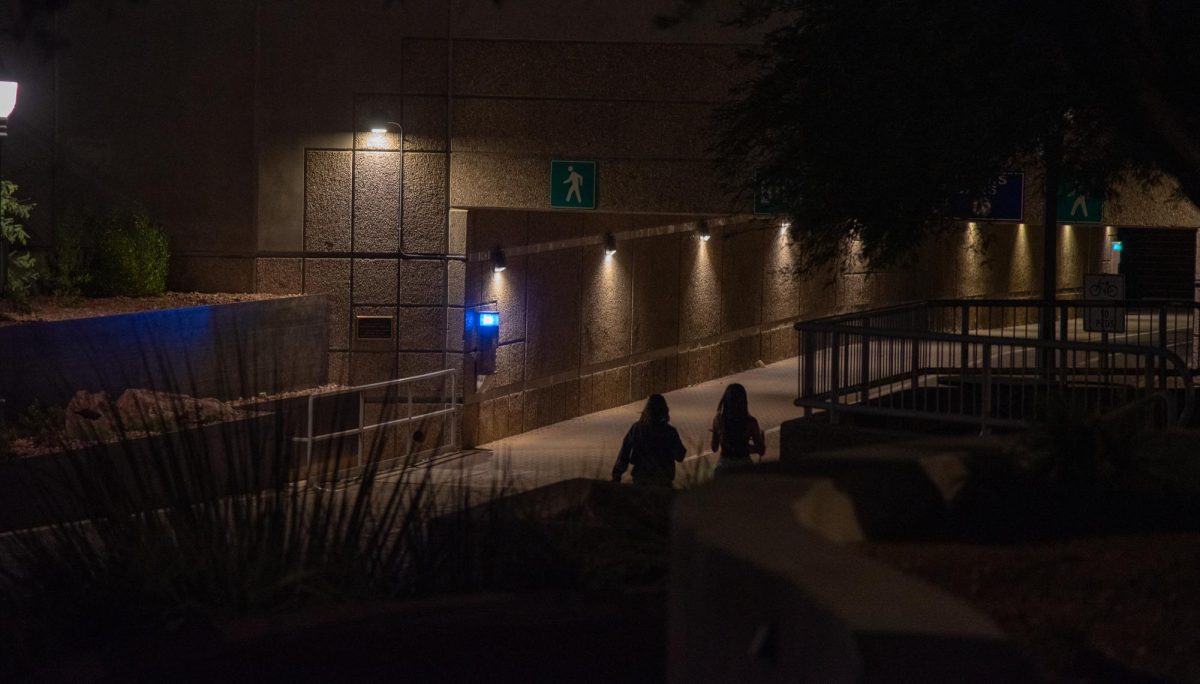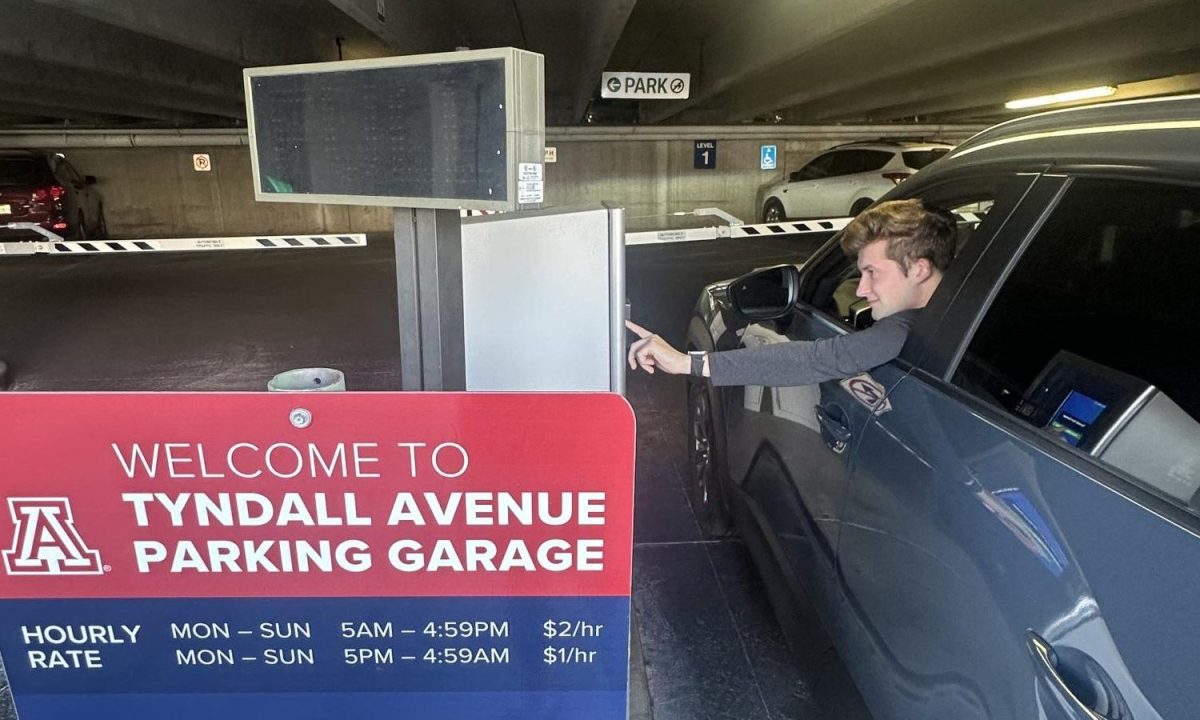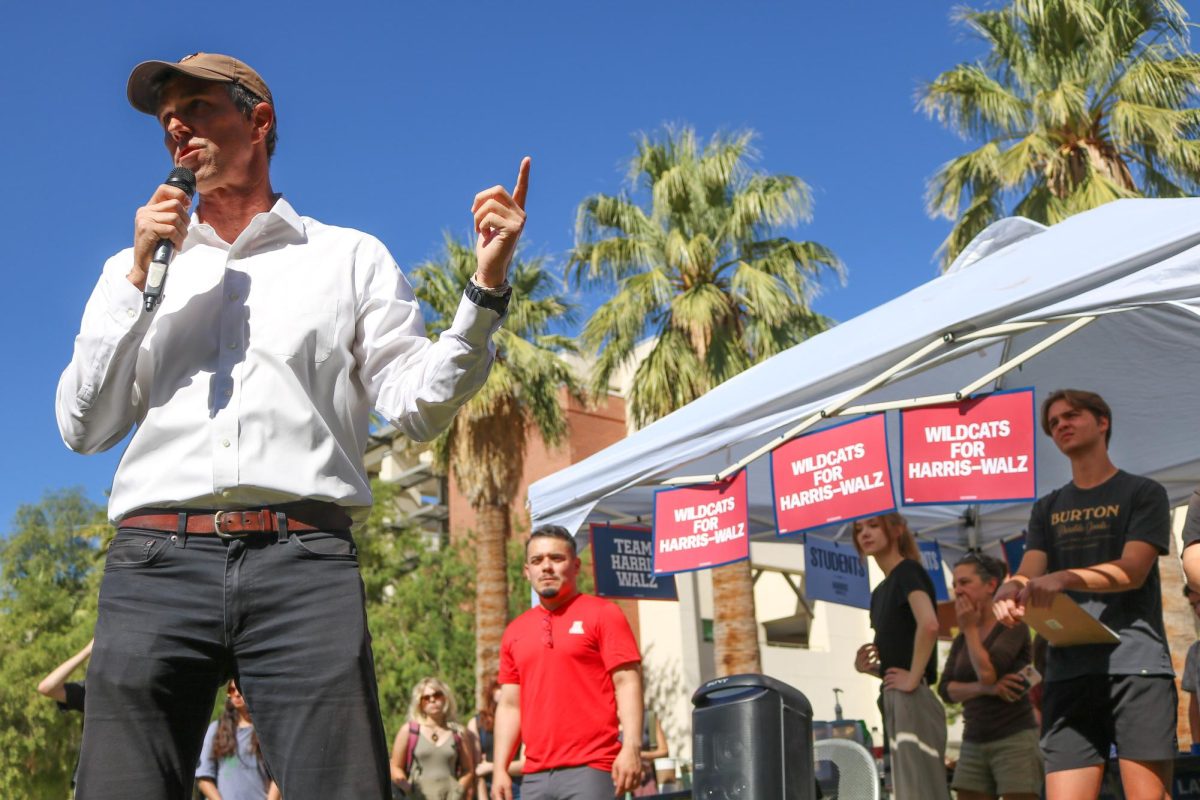*Editor’s Note: This article appeared in the Daily Wildcat’s 2017 Orientation Guide.
Brendan Murphy came out of his afternoon class to find his bike gone.
It was September 2015, and he’d parked his Diamondback road bike, worth about $250, on the north side of the Harvill building, secured with a cable lock. He’d already seen lone tires still locked to the bike racks and bikes missing their seat at that same parking lot, but he just couldn’t believe his bike was gone.
“I kind of flipped out at first,” Murphy said. “I went across to another place where I park it off and on, towards the music building. It wasn’t there either. And then I was like—no, it’s actually been stolen.”
The 24-year-old computer-science and Japanese major is one of more than 250 UA students to be victims of bike theft each year. One of the most prevalent campus crimes, bike theft has dropped by 24 percent since 2012, but bike recovery is exceedingly rare, according to an analysis of campus-crime reports and data by The Daily Wildcat.
Bike theft reports topped 330 in 2012 and were down to an average 276 for 2015 and 2016. With only 62 reports as of May 3, this year is off to continuing the downward trend.
Just fewer than 6 percent of stolen bikes in 2016 and 2017, as of May 3, were recovered and returned to the owner.
Although many bikes are stolen, they still don’t reflect the reality of how many bikes get stolen, said bike-enthusiast, UA journalism professor Michael McKisson.
“If you ask a bunch of people on campus how many of them have had their bike stolen, a whole bunch of hands will shoot up,” he said. “And then if you ask them, ‘How many of you reported it?’ a whole bunch of hands go down. This is a really underreported crime.”
It’s not clear how underreported it is, but McKisson said campus police don’t understand how big a problem it really is.
From January 2016 through April 2017, UAPD officers have caught 18 people in the act of stealing a bike, by responding to calls about suspicious activity or witnessing it while on patrol. Among these deterred in-progress thefts, UAPD was able to locate 10 of the bike owners, and in 314 reported bike thefts during that period, eight were recovered after-the-fact and returned to the owner.
UAPD can only identify an owner if the bike is registered with Parking and Transportation, the owner shows up while the theft is in progress, has a serial number or reports it stolen. Unreturned bikes go to a monthly public auction at the UA Surplus Store.
UAPD does have a quick response time to in-progress thefts or suspicious activity, said Officer Rene Hernandez.
“We do a very good job of being proactive here at the UA and trying to deter crime as much as possible,” Hernandez said.
The thieves usually act suspicious, according to the 2016 and ’17 reports. All too often, they have bolt-cutters sticking out of a backpack, are fleeing with two bikes or are acting belligerent. One 46-year-old man was even riding a skateboard while guiding a $900 Bianchi missing a front wheel.
When UAPD receives reports of bike theft, it checks a pawnshop database for the bikes that have clear identifiers, such as a serial number. They can look for other identifiers such as engravings, but without the serial number, it’s almost impossible to recover the bike, Hernandez said.
An analysis of individual 2016 and ’17 reports revealed that four bikes were recovered from pawnshop audits during that period.
The hardest hit spots over the last six years are the UA Main Library, the Student Recreation Center and the Modern Languages building.
Hernandez said the library and rec center are probably targeted because those areas are open to the public and have the most foot traffic. The library’s building manager Hayri Yildirim agrees, pointing out the library has an average 7,700 people passing through its doors every day.
There are a few simple steps you can take to lower your risk of bike theft and raise likeliness of getting your bike back:
· Report a bike theft ASAP. There’s no way you’re getting it back unless you report it.
· Report to UAPD and Tucson Police Department. If you give Tucson Police Department a serial number, they may recover it down the road.
· Report your bike stolen on bikeindex.org, a national site that lists bikes using search words. If someone correctly suspects a bike was procured through shady means and they Google it, it’ll show up as being reported stolen.
· Check the Sun Tran city bus’ lost and found. Believe it or not, bike thieves will often ride a bike around, hop on a bus with it and then abandon it on the bus.
· Know your bike’s serial number. It’s crucial to recovering it if stolen.
· Register your bike with UA Parking and Transportation, at their website, parking.arizona.edu. They send you a registration sticker with a permit number to affix to your bike, and UAPD can use this to identify stolen bikes in the pawnshop audits.
· Use a U-lock and put it through the bike frame and front wheel. Or run a cable lock through both wheels and secure the frame with a U-lock.
· UAPD, 1852 E. First St., sells Master Lock U-locks for $15. Abus U-locks at Sonoran Cycles, 845 E. University Blvd., are rated by the level of security they offer, 1 to 15. A level 8 costs $35.
· Use the bike valet, open from 7:45 a.m. to 6 p.m., Monday through Friday. Bikes left there overnight are locked with a secure U-lock.
Deterrence is the best remedy
The main cause of bike theft is improper locking. The University of Arizona Police Department recommends locking bikes with a U-lock rather than the cheaper cable lock and to secure it through the bike frame and front wheel.
The front wheel is easier to take off than the back one, so that’s the one you want to lock along with the frame, said Michael McKisson, UA journalism professor and bicycle enthusiast.
“The big thing when it comes to locking is making your bike more of a pain to steal than somebody else’s bike,” he said. “Unfortunately, there are bike thieves and bikes will be stolen.”
Chad Hall at Sonoran Cycles, a block-and-a-half from Main Gate on University Blvd., has noticed bike thieves are becoming more brazen.
He points to a bike in the shop with a missing wheel and explains the bike’s frame was locked with a U-lock and the wheel with a cable lock. The thief cut the cable and took the wheel.
Bike wheels can either be quick-release or bolted to the bike. Usually it’s the quick-release wheels that get stolen, said Hall, who’s worked at the bike shop since it opened in October 2015. If everything is bolted on, it’s semi-safe because of time constraints.
“Recently, it doesn’t matter anymore,” he said. “All of a sudden, bolted wheels are getting stolen left and right.”
Having to replace wheels can be very pricey, with wheels costing around $150 a piece, Hall said.
“The problem for the average student is that cost adds up pretty fast when you go ‘a la carte’ style,” he said. “The best recommendation is spend a little extra money on your locks up front.”
President of the UA Cycling Team Joey Iuliano said quite a few of his teammates have had bikes stolen. So he’s put a lot of thought into deterrence.
“Don’t buy a flashy bike,” he said. “You want something that works and is safe but is an average run-of-the-mill bike.”
Another foolproof way to bike security is using the free bike-valet, in front of the Nugent building. The valet parks about 250 bikes a week, according to UA Parking and Transportation. A bike was stolen once in 2013, but they since upped their staff to at least two at all times and have not had another incident.
When Murphy’s bike was stolen, he filed a report with UAPD. However, he hadn’t registered it with Parking and Transportation, and he didn’t have a serial number. He never heard back from UAPD or recovered his bike.
He couldn’t get a new bike right away. As a full-time student with a double major and working part-time at UA as an IT tech, he just couldn’t afford it.
He borrowed a friend’s rundown bike for a while, and when that got stolen off his front porch, he appealed to the “great goodness” of his parents for help getting a new bike. Now he uses a U-lock and is careful about where he parks.
Iuliano said using a U-lock is the best theft-deterrent. According to the reports, it takes about 30 seconds to cut a cable lock.
“It’s really just a question of how well do you lock your bike,” he said. “If you ride a really nice bike or something that looks flashy—it’s a bright color or it looks like it might be nice, and all you do is use a simple cable lock, it takes probably less than two minutes to cut that in half.”
UA Surplus Store holds monthly auctions that include unclaimed bikes at 3740 E. 34th St., one Tuesday a month, from 8 a.m. to 3:30 p.m. Besides stolen bikes, they have a variety of things the UA has no use for, be it outdated electronics, passé office furniture or unwanted odds and ends. For more info on the bike auctions go to auctions.arizona.edu or call (520) 621-1754.



